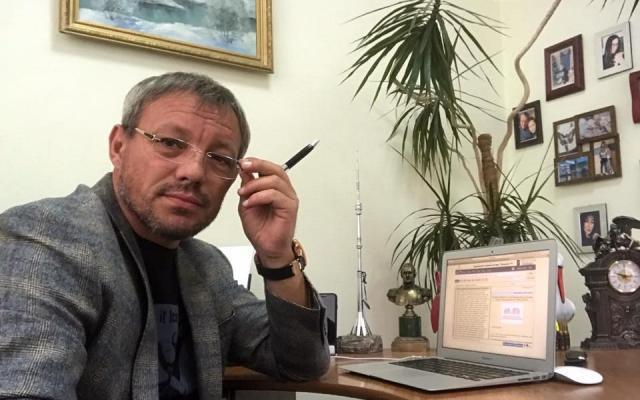
Home quote
We have concluded agreements with many countries of the world on recognition of Ukrainian diplomas of higher education that are now highly thought of in more than 50 countries and officially recognized for the purposes of further professional activities. These include the United States of America, the CIS countries and the European Union member states.
Publications
Ukrainian diplomas abroad. Confirmation and legalization procedure
Contrary to the skeptical attitude towards the importance of Ukrainian diplomas abroad, only a few people know that we have concluded agreements with many countries of the world on recognition of Ukrainian diplomas of higher education that are now highly thought of in more than 50 countries and officially recognized for the purposes of further professional activities.
These include the United States of America, the CIS countries and the European Union member states.
Taking into consideration the increased number of citizens’ referrals for consultations related to these issues, I find it useful to shed light on some of the nuances and opportunities in this field.
The right of the citizens to confirm the Ukrainian diplomas of higher education under a simplified procedure in ensured by the Hague Convention on the Simplified Procedure for the Legalization of Documents (1961) and the Lisbon Convention on the Recognition of Qualifications concerning Higher Education in the European Region (1997).
In addition, in 2008 Ukraine joined the Bologna system, which forms a unified standard of education in the European Higher Education Area.
To implement the provisions of the Bologna Declaration Ukraine is carrying out large-scale reforms and modernization of the educational system.
In Ukraine the European credit transfer system has been introduced, as well as a supplement to the European-style diploma, which are unified tools to assess the students’ academic achievements. The diploma supplement contains more information and makes it possible to compare the educational program completed by the students during their studies in Ukraine with the relevant programs in other countries.
This greatly simplifies the procedure for recognition of Ukrainian diplomas of higher education in both European and other countries.
Ukraine has also signed a number of intergovernmental agreements on the mutual recognition of educational documents with more than 20 countries, including the CIS countries, Slovakia, Hungary, Poland, Peru, Mongolia, Libya, Estonia, Georgia, Equatorial Guinea, Bulgaria and Vietnam. An agreement on mutual recognition of academic degrees and titles was signed with France.
As for the CIS countries, the majority of them consider the Ukrainian diploma to be equivalent to the national one. Some of them recognize Ukrainian diplomas only if the content of educational program is the same. It is only necessary to confirm that the citizen’s diploma is not a fake one. To do this a citizen shall obtain an apostille at the National Information Center for Academic Mobility.
But, despite international agreements, it is not infrequent that the host countries confirm diplomas without granting the right to get a job or to obtain further education (in case of studying abroad at a master’s degree program after obtaining bachelor’s degree in Ukraine).
This inconvenience is associated with different requirements for education.
There are bodies in each country involved in the confirmation of diplomas, which can establish their own rules. There are general principles set forth in the Convention on the Recognition of Higher Education Diplomas in the European Area, which are to be observed by the signatories or ratifying member states, but they do not prevent them from establishing individual criteria, taking into account their national legislation.
However, unfortunately, the above-mentioned Convention has not been ratified by all countries, and those countries that have signed this Agreement may have their own specific features, practices and requirements.
The fact that the university (where a diploma is obtained) has foreign partner universities to implement joint exchange programs and double degree programs significantly simplifies the legalization of diplomas abroad.
This allows studying abroad and getting a foreign university diploma together with the Ukrainian one.
To get a second diploma students are required to go abroad once a semester or once a year to study there in their specialty.
The double diplomas programs are developed for both bachelor’s and master’s degree programs.
Depending on the agreements between universities, they can be either paid or free of charge.
Please note that very often applicants mistakenly think that the second (foreign) diploma provides for the automatic acquisition of the right to practice the profession in the country of stay.
This is not true. In the European Union member states the professional qualifications for a number of specialties require separate confirmation.
There may be requirements not only to the number of years of study or the content of educational program, but also the requirement to pass a qualification exam in the country where citizen wants to confirm his/her diploma.
This may be quite problematic because of our old model of education and the standards that were in operation until recently.
These standards set a list of the names of disciplines and the number of hours, but the European model requires not only the names of disciplines, but their content: what the students learned and what can they do.
In this regard there is some inconsistency between Ukrainian diplomas and European requirements.
There may also be questions about the quality of education in some specialties.
One and the same country can recognize Ukrainian degree obtained in Mathematics and may not recognize it in some other specialties.
The most difficult situation is for lawyers and doctors, whose diplomas are almost impossible to confirm under a simplified procedure and automatically get the right to work.
Physicians, in many specialties, are required to undergo additional training and retraining.
And diplomas of lawyers in almost 100% of cases will not be confirmed at all, since every country has an entirely different legal system and base.
Unfortunately, the problems with Ukrainian diplomas of higher education may also arise because of the unfinished transition to the provisions of the Bologna system in Ukraine.
The three cycles of higher education – the bachelor’s, master’s and Ph.D. degree programs – were introduced in Ukraine only this year.
In another couple of years those students, who entered the universities in old specialties and under old procedures, will finish their studies.
Ukraine has already established a national framework of qualifications, which generally meets European requirements. At the moment the higher education standards are being developed, which should help implement this framework in the context of specific specialties.
To make a citizen's document on education, received in Ukraine, valid in the territory of another country, after receiving it one shall undergo a certain legalization procedure.
If the country, where the citizen is going to conduct professional activities, is a party to the Hague Convention, just as Ukraine, it will be enough to apostille the diploma received.
This simplified procedure for the legalization of documents is universal for all member states of the Convention, and provides for the observance of minor procedures for the legalization of educational documents in the Ministry of Foreign Affairs of Ukraine. These procedures are simple and usually universities help their graduates to formalize everything in a proper way. At the same time, I recommend that you know in advance what kind of documents’ confirmation is required by the country of your stay.
The legalization and apostilization procedures are intended to confirm the legitimacy of documents issued to citizens, if used outside Ukraine.
Due to the fact that Ukraine is already a party to a number of bilateral agreements with other countries on mutual recognition and equivalence of educational documents and academic degrees, I am sure that these countries will make the procedure for recognition the qualifications of citizens holding Ukrainian diploma of higher education as simple and comfortable as possible.
Full text is published on LigaBiznesInformOther publications author
Publications

Ihor Kolesnykov A BRIEF SUMMARY REGARDING THE APPLICATION OF THE ORDER ON EXTENDED CONFISCATION IN LATVIA REGARDING FINANCIAL ASSETS OF…

Valentyn Gvozdiy WORKING IN A WAR ZONE

Lydia Izovitova Formula of perfection

Sergiy Vylkov Our judicial system is so built that courts do not trust advocates

Iryna Vasylyk Advocacy in the proclamation of Independence of Ukraine

Oleksandr DULSKY When we cross the border of the Supreme Anti-Corruption Court, we get into another department of the National Anti-Corruption…

Vadym Krasnyk The UNBA will work, and all obstacles and restrictions are only temporary inconveniences

Lydia Izovitova Interview with Lydia Izovitova on the occasion of the 8th anniversary of the founding of UNBA: We are the voice of t…

